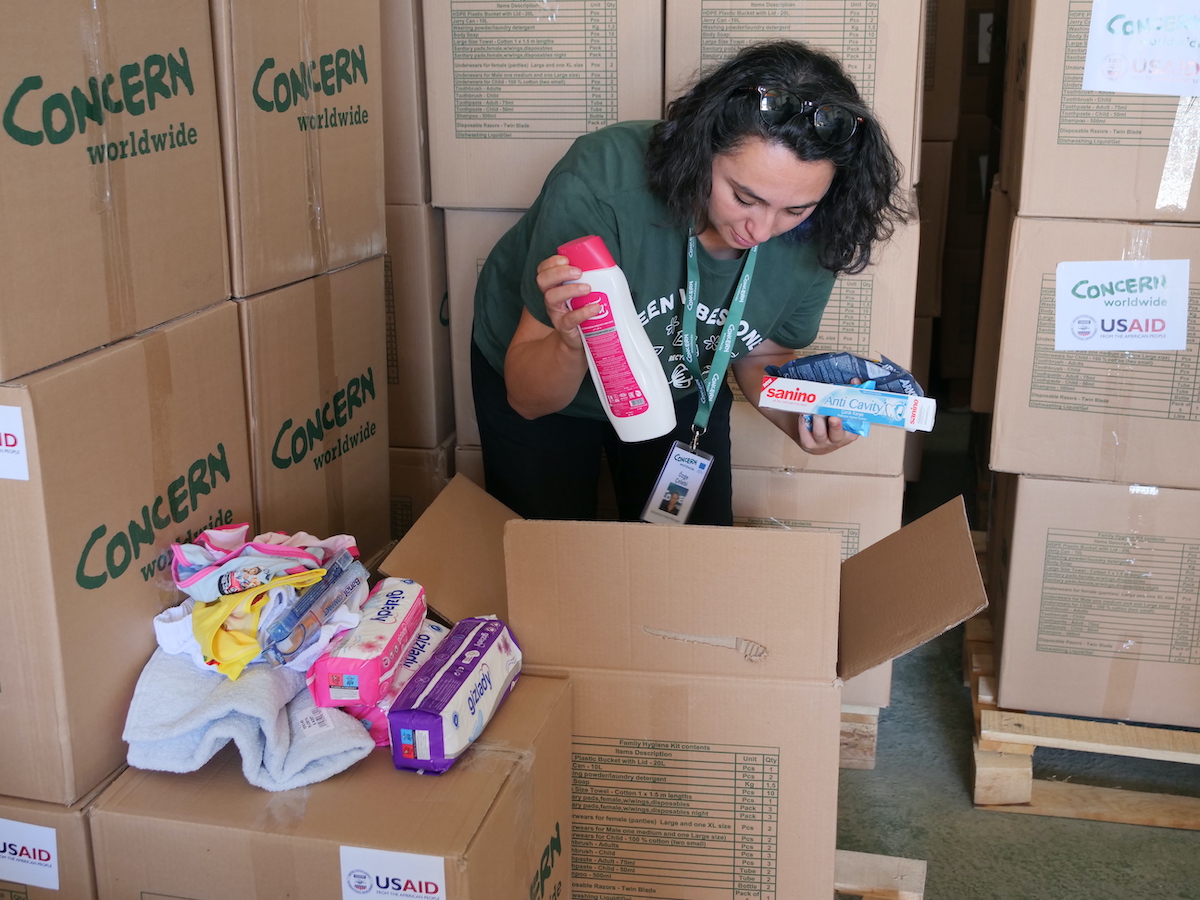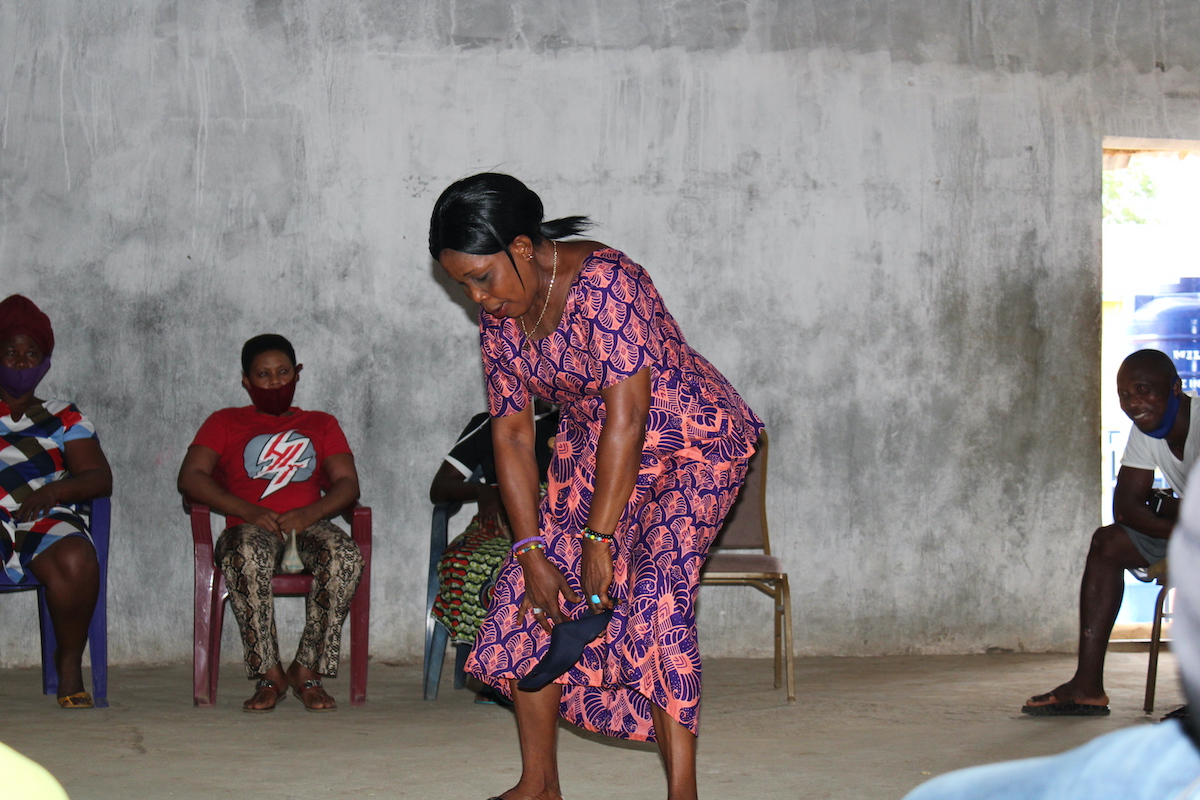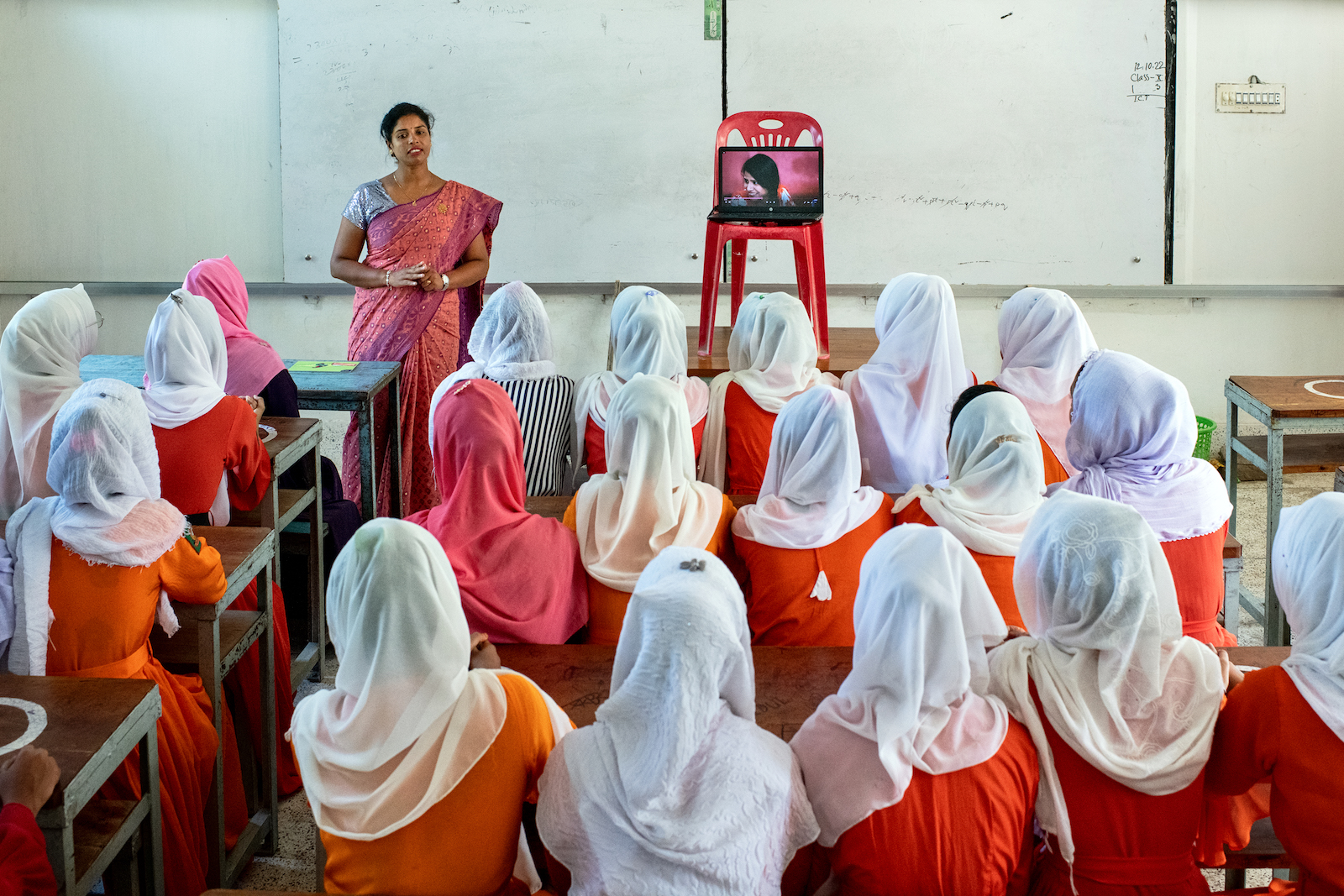News
10 of the biggest problems facing education in 2024
Period stigma is just one of the issues that keep millions of people out of the classroom. Learn more about some of the other unexpected barriers to education around the world.
Read MoreOver 800 million people get their periods each day, however it’s a subject that remains taboo — even in the United States. The knock-on effects of this leave millions losing out on many of their most basic rights, from healthcare to education. Over time, these compound factors have led to what some experts have called one of the world’s biggest public health crises.
With May 28 marking Menstrual Hygiene Day, here’s what you need to know about period poverty — including how Concern is helping to end it.
Period poverty (also known as menstrual poverty or menstrual inequality) happens during a lack of regular access to safe and hygienic period products, basic sanitation services, and/or menstrual hygiene education.
While the term is relatively new, it describes a historical and near-universal issue, one that disproportionately affects low-income individuals, communities, and countries.

Like the name implies, period poverty is driven by income inequality and a lack of funds for basic household needs. However, that’s only part of the story.
We could, for instance, look at the larger causes of poverty and how many of these same issues specifically influence period poverty. Conflict, natural disasters, and global health crises all mean lost or compromised livelihoods, along with shortages of basic essentials like pads and tampons, and ruined infrastructure.
Inadequate water, sanitation, and hygiene (WASH) in general is also a key factor. In areas that are underserved in this regard, many girls stay home from school during their period as they may not have safe or sufficient facilities at school. This is an issue that hits close to home: Approximately one-fifth of American adolescents have missed school due to a lack of adequate period protection.
What about period stigma?
One of the biggest causes underscoring period poverty is menstrual stigma. Taboos, myths, prejudices, and shame surrounding menstruation show up in different ways around the world, from using euphemisms in everyday conversation to having a series of “purification” customs and rituals, such as forcing women and girls to live in a menstruation hut during their cycles — a practice that is now mostly illegal but still performed.
“The first thing that we have been taught is that periods are dirty and shouldn’t be seen,” said Kenyan senator Gloria Orwoba in 2023. In Orwoba’s jurisdiction, girls routinely skip school during their periods.
Periods are often seen as a weakness rather than a normal biological function. Period poverty and stigma help to reinforce prejudices that have both implicit and explicit impacts on laws and policies.
This leads to a vicious cycle: Periods are seen as taboo, a weakness, or a private matter. Because of that, access to menstrual hygiene products is often not prioritized, even in high-income countries, even the US: In 21 out of the 50 states, pads and tampons are still taxed as “luxury” items. The same goes for education about menstrual hygiene and reproductive health.
This directly affects 1.8 billion people around the world who menstruate, but it has further-reaching implications. As mentioned above, period poverty has a direct effect on girls’ education, with more girls missing school during their cycles and not having an opportunity to make up the work. This in turn affects the earning potential for adolescents as they enter adulthood and the workforce, and creates the risk of an intergenerational cycle of poverty.
Most immediate, however, is the effect that period poverty has on people who are unable to get the hygienic supplies they need. Our bodily functions don’t start or stop based on our ability to pay for their care. People who menstruate and are unable to afford products like tampons, pads, or clean underwear often reuse soiled products, opt for substandard alternatives (such as scrap cloth or sawdust), or rely on tainted water sources. These can all lead to infections, reproductive problems, mental health issues, or even death.

Fortunately, period poverty is a problem with a very clear solution. Epidemiologists Ashley Rapp and Sidonie Kilpatrick write: “Access to menstrual products is a right, and feeling clean, confident, and capable during one’s period is a necessity. We can all work toward menstrual equity, and the opportunities are boundless.”
De-stigmatization is a key factor in building menstrual equity: While many countries have stopped taxing menstrual products and outlawed harmful cultural practices (like menstruation huts), these are only a part of the problem. Attitudes need to shift — for everyone — in order to break the taboos surrounding menstruation. For example, Kenya (which removed value-added taxes on period products in 2004), recently implemented a policy on menstrual hygiene management (MHM). The Kenyan MHM Policy seeks “to ensure that myths, taboos and stigma around menstruation are addressed by providing women, girls, men, and boys access to information on menstruation.”
“Access to menstrual products is a right, and feeling clean, confident, and capable during one’s period is a necessity.” — Ashley Rapp and Sidonie Kilpatrick, epidemiologists, University of Michigan
However, even putting policies in place are likewise not enough, as senator Gloria Orwoba pointed out last year, when she received multiple threats following her campaign to improve access to menstrual products. What this shows is that the solutions to period poverty have to happen continually, with ongoing efforts towards access, legislation, and education combined with evaluating and refining those efforts to ensure lasting change.
You could also call that a cycle.

Across sectors and countries, Concern ensures that the impacts of our work are sustainable and lasting by making sure that we consider the needs and challenges faced by people often excluded from the decision-making table.
We advocate for equality within healthcare sectors, including at the policy-making level. This often has a direct impact on both access to menstrual healthcare and on destigmatizing conversations around menstrual, sexual, and natal health.
Our water, sanitation, and hygiene programs also address the issue of access to safe and dignified facilities for adolescents, especially in schools. Our emergency responses also include providing dignity and hygiene kits that include period supplies, so that those whose lives are interrupted by crisis or conflict still have the most basic needs to stay clean, confident, and capable.